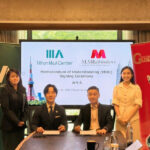Every supply – whether of goods or services – has four possible VAT treatments: standard-rated, zero-rated, exempt or outside the scope of VAT.
VAT: Will UAE businesses have to factor in multiple charges in a single supply?

By Pankaj S Jain, Special to Gulf News
Every supply – whether of goods or services – has four possible VAT treatments: standard-rated, zero-rated, exempt or outside the scope of VAT.
A supply could involve multiple elements / components. The VAT treatment could be determined for each component either individually (‘multiple supplies’) or collectively (‘single composite supply’). The UAE VAT laws have adopted the two universal tests to distinguish between ‘single composite supply’ and ‘multiple supplies’.
The first test is that of a principal component and incidental/ancillary components. The second test is that of unnatural splitting of closely linked elements of a supply. The two tests – accepted globally by various courts – not only identifies a single composite supply if the transaction is artificially split into multiple components, but also vice versa.
For example, a designated zone supplier (‘Co.A’) sells machinery worth Dh700,000 to an overseas customer. The Co.A further charges Dh7,000 towards palletisation, loading / unloading and freight. The components of palletisation etc. were generally considered as incidental elements. The supply by Co.A was hitherto treated as – a ‘single composite supply’ – outside the scope of VAT.
Recent amendment in VAT laws
Effective November 15, 2024, for a single composite supply to exist, the price of different components of the supply should not be separately identified or charged by the supplier. If the tax invoice – or, the quote or the underlying contract – reflects the price of each component separately, the supply would not qualify as a single composite supply.
The B2B supplies in gold and jewellery industry will be immediately impacted. The ‘making charges’ identified only in the purchase orders/quotes will become taxable even if not charged separately on the invoice.
A pertinent question now arises – will the identification of separate prices override the two universal tests?
Disrupting industry practices
If charging – or identifying – prices for each component rules out the existence of a ‘single composite supply’, many industry practices could face potential disruptions.
In the aviation industry, budget airlines often charge separately for priority boarding or preferential seat selection. In the healthcare sector, the healthcare body/institution charges separately for the patient’s food and room accommodation. Would such elements be henceforth taxable even though the principal component of international transportation and healthcare respectively is zero-rated?
If a real estate developer were to quote or offer separate prices for instalment payment plan and for upfront payment respectively, could the differential price be treated as an exempt financial service?
In the IT sector, the supply of software to overseas customers for use and enjoyment outside UAE is generally outside the scope of VAT. The incidental charges for remote installation or troubleshooting support could henceforth attract separate VAT treatment.
Input tax eligibility
A recent public clarification (VATP040) has stated that if a single fee is charged for a marketing campaign, but the price for each component (e.g. venue rental, catering, promotional goods etc.) is specified in the contract, the supply would not constitute a single composite supply.
If so, the recipient businesses may also need to review their input credit eligibility for marketing campaigns as credit restrictions applies on entertainment expenses.
Impact on free zone businesses
For businesses located in designated zones (Co.A), freight is often charged separately from the sale price of the goods. Would the freight charges be a separate taxable supply even though the principal supply of the goods is outside the scope of VAT? If so, would the freight charges to overseas customers be eligible for zero-rating and be so reported in the VAT return?
For UAE corporate tax, income from any activities that are ancillary to the specified qualifying activities are eligible for 0% corporate tax. The determination of ancillary activities could pose a challenge once VAT is applied separately on each component of a supply by designated zone suppliers.
The recent VAT changes could potentially disrupt the established tax practices and create additional compliance obligations and costs for otherwise insignificant tax amounts. Businesses should revisit their VAT positions to identify new created gaps and risks. A further clarity from the Federal Tax Authority (FTA) on such industry wide issues could also be immensely helpful for all businesses.
News Articles
McM Articles
Events
Financial Crisis Reports
2026-01 McM crisis report 01
2025-12 McM crisis report 12
2025-11 McM crisis report 11
2025-10 McM crisis report 10
2025-09 McM crisis report 09
2025-08 McM crisis report 08
2025-07 McM crisis report 07
2025-06 McM crisis report 06
2025-05 McM crisis report 05
2025-04 McM crisis report 04
2025-03 McM crisis report 03
2025-02 McM crisis report 02
2025-01 McM crisis report 01
- Archives -










